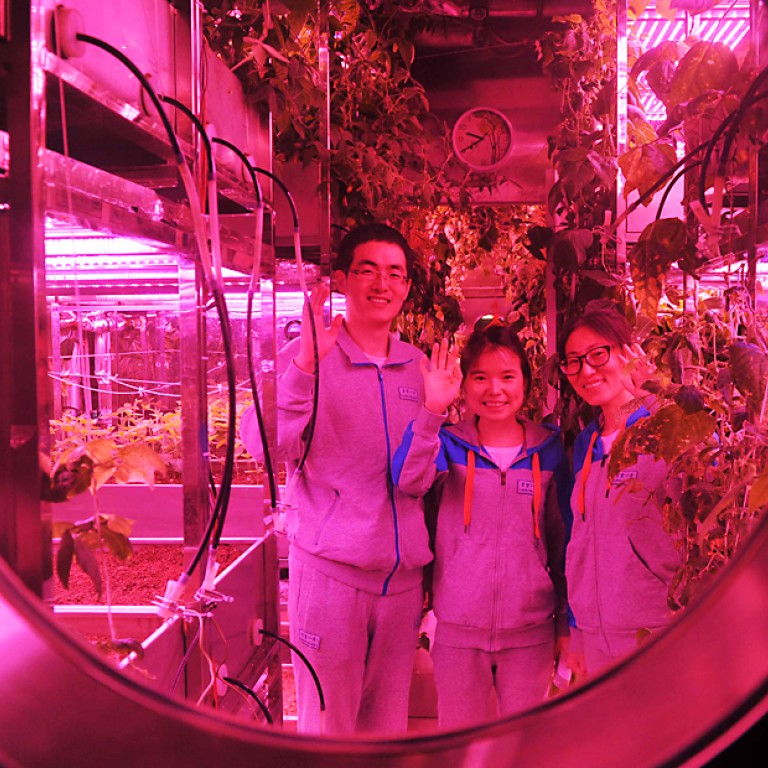
A diet of worms: Chinese volunteers spend 105 days eating creepy crawlies in space experiment
Researchers have spent more than three months living in a sealed lab to simulate growing their own food away from Earth
Three volunteers have chalked up another first for China's space programme.
They have spent 105 days living in a sealed test laboratory in Beijing and proved that worms can be the main source of protein during long space missions.
The idea of using the animals as one of the main sources of food to sustain astronauts met with resistance in the West after scientists from China first proposed the idea in 2009.
Critics argued that although worms were high in protein, they would look unappetising and lower morale among astronauts.
But the volunteers in the Beijing experiment showed little physical or mental discomfort after spending three months munching on the invertebrate animals, according to a scientist involved in the research.
The results of the project will now be considered by China's space authorities in the design and construction of future manned space missions.
The tests were carried out at the Moon Palace One, a closed, man-made biosphere at the Beijing University of Aeronautics and Astronautics, which is China's largest and most sophisticated facility for developing life support systems in space.
The 160-square metre structure has three chambers, one for living quarters and the other two for growing plants.
The facility uses technology including fuel cells to ensure the researchers are self-sufficient while living in the closed environment.
Hu Dawei, a researcher involved in the project, said the volunteers, one man and two women, fattened up the mealworms on a diet of plant leaves and stalks.
The mealworms are composed of more than 76 per cent protein and can grow to the size of a finger in about a month.
Watch: What insects are edible?
A volunteer would need to eat dozens of them to meet daily nutritional needs, Hu said.
"It did take them some time to adapt to the diet. None of them had ever tried them as food before," he said. "The process was not difficult to manage. They all seemed healthy and happy throughout the experiment."
Hu said the volunteers had applied various seasonings, including a bean sauce, to the worms and numerous recipes had been tried. However, the volunteers still had to rely on other sources for more than half their food, according to Hu.
The team is now planning to add another plant chamber to the facility so four volunteers can be completely self-sufficient living on vegetables and worms.
"The United Nations has recommended mealworms for starving people in poor areas such as Africa, so we thought why can't they be used by astronauts in space," he said.
"Worms may look disgusting at first glance, but they are actually the cleanest and healthiest food source."
China put its first man in orbit in 2003, and has since made rapid progress in its space programme, including putting a rover on the surface of the moon last year. It plans to build a space station by 2020.
However, Liu Lei, a restaurant manager and space enthusiast living in Beijing, said he was disappointed by the use of worms in space travel. "Worms on the menu might put off some people who dreamed of being an astronaut," he said.


